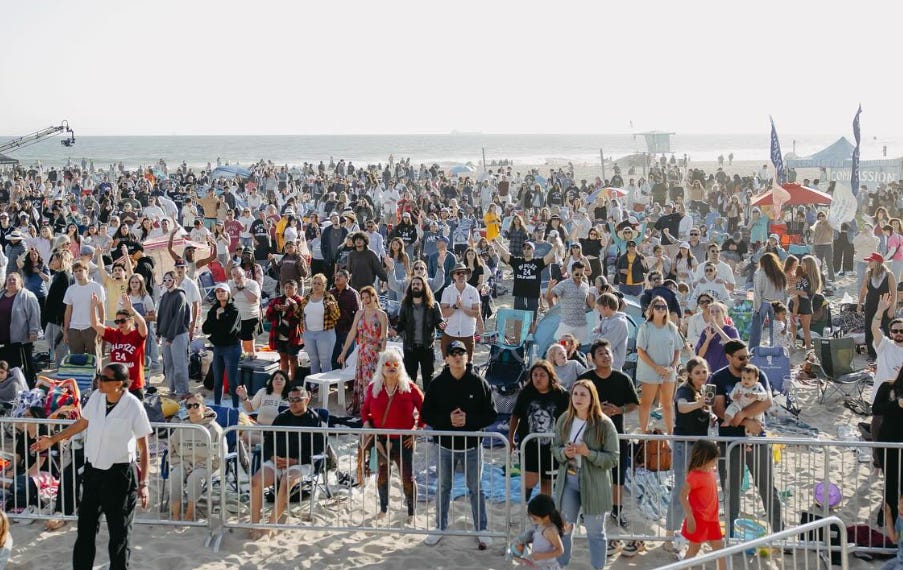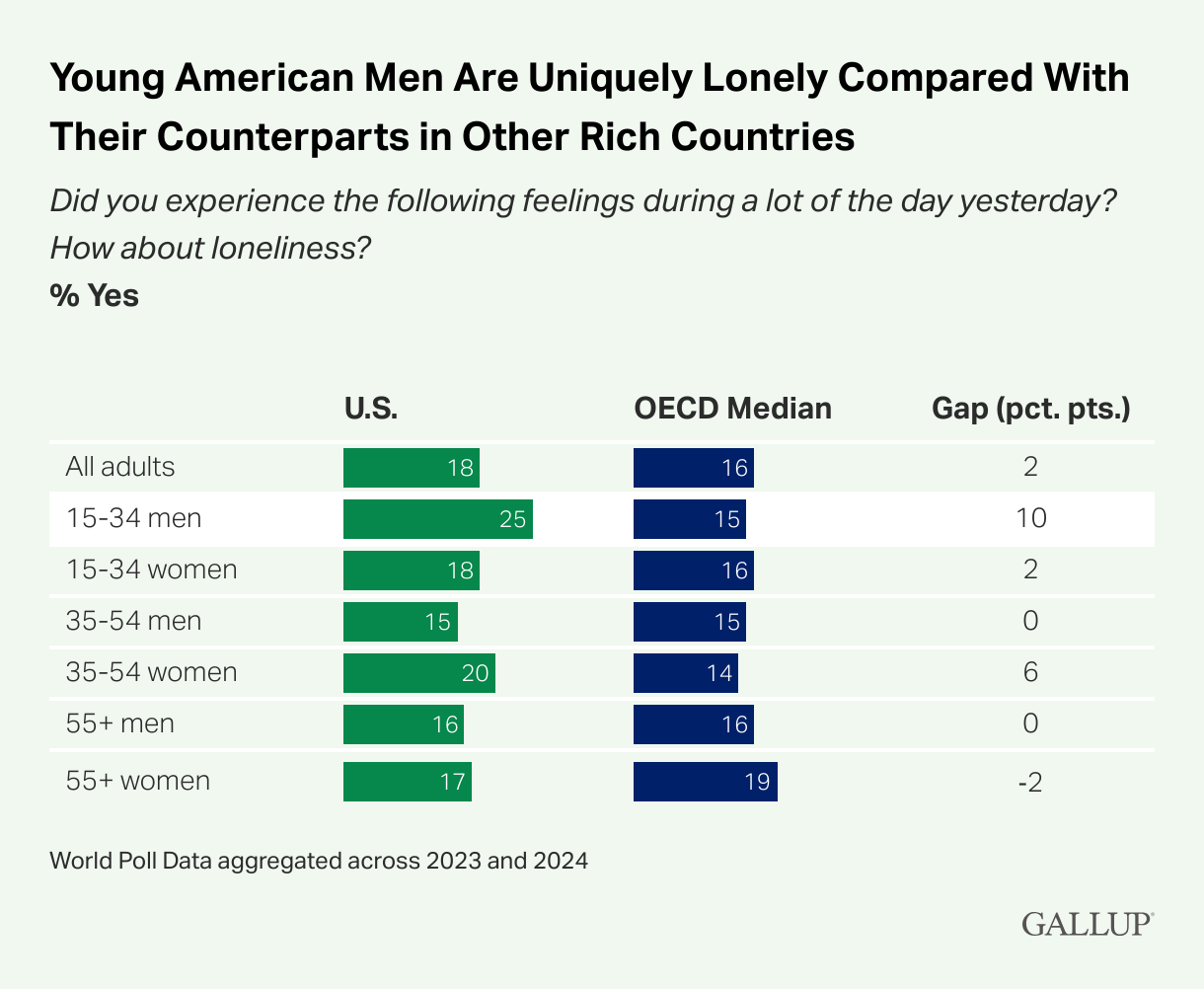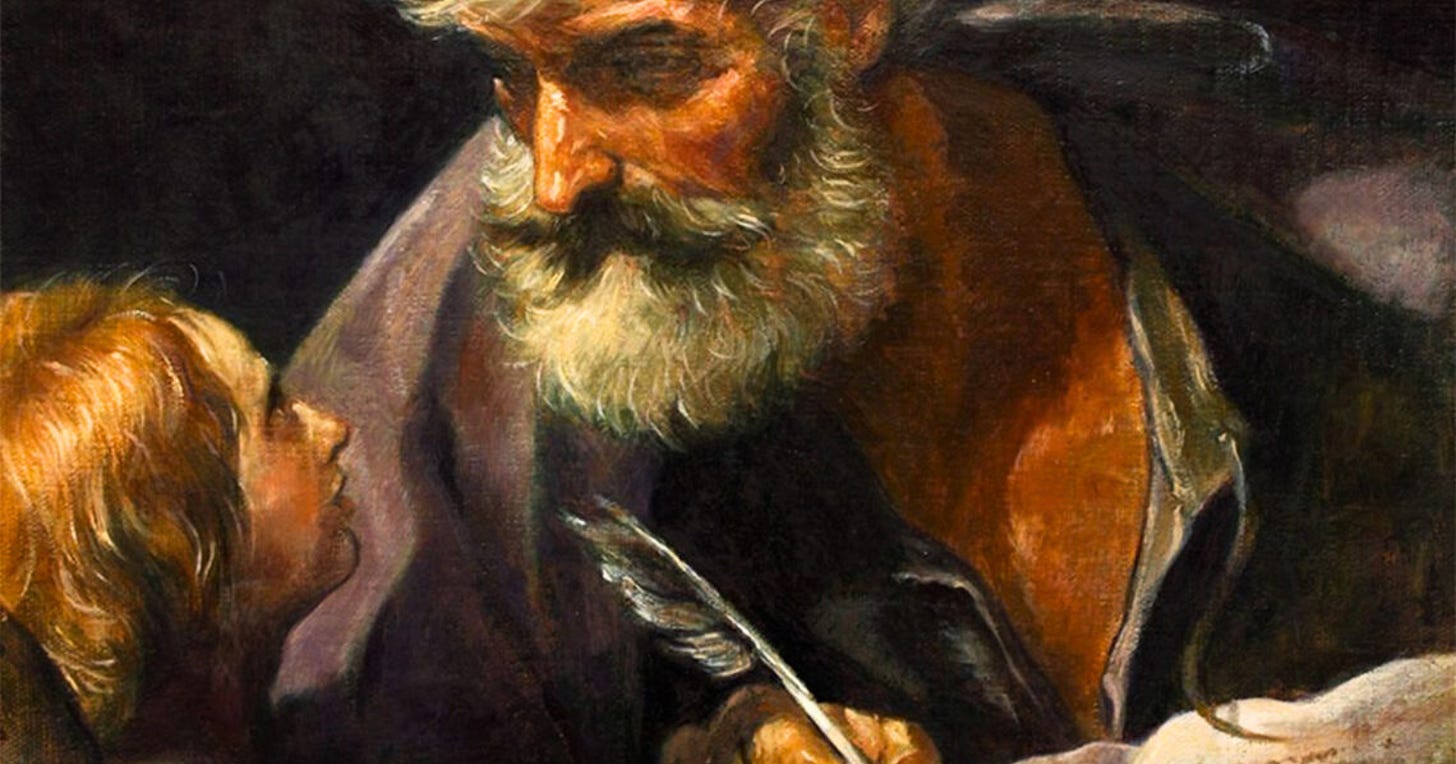The West's Christian Revival
Young people in the West are returning to Christianity.
The Fire Rekindled
Near the close of the Roman Empire, St. Augustine wrote, “You have made us for yourself, O Lord, and our heart is restless until it rests in you.” He saw clearly what Rome’s proud citizens refused to see: an empire rotting from the inside out. Rome offered bread, circuses, and distractions. Augustine knew these would never satisfy the human soul.
Today, our cities shimmer with screens and lights brighter than Rome ever dreamed. Distractions are everywhere. Streaming shows fill our empty hours. Endless scrolling numbs our restlessness. But Augustine’s truth remains. We are still restless. Our hearts still search for rest.
For decades, Christianity in America and Europe seemed to fade. Churches emptied. Cathedrals became museums. Religious faith appeared destined for the history books, an old relic of a simpler time. Poll after poll showed declining numbers. The pews were gray with age.
Yet beneath this apparent decay, something surprising happened. A new generation raised in a world that told them life had no meaning, began to search for one. Disillusioned by the emptiness of modern comforts, young people started knocking on church doors again and attending service. They began seeking truth beyond shallow evil and consumer indoctrination.
And so, quietly, without media fanfare or mainstream attention, Christianity began to surge back into the cultural bloodstream.
The Young Seekers
Statistics tell a striking story. According to the Pew Research Center's 2025 report, church attendance among young adults (ages 18–29) in the United States has risen steadily over the past five years, now surpassing numbers last recorded in the 1950s. Similar trends are emerging across Europe. In Britain, a survey by The Guardian revealed that in 2025, weekly church attendance among those under 30 grew by 14%, reversing decades of decline.
But even more remarkable is the growing draw toward Catholicism. In 2025 alone, the Vatican reported a 12% increase in conversions among young people in the US and Europe, the largest annual increase in nearly a century. Young converts speak of a hunger for depth, tradition, and stability in an uncertain world. They are drawn to the quiet reverence of Mass, the contemplative richness of liturgy, and the intellectual heritage of the Church.
Why this sudden embrace of ancient tradition? Because modern life promised them freedom and delivered loneliness. It offered comfort and gave anxiety. It replaced God with self-worship and false idols, and left millions feeling empty.
Evidence of this includes; a 2025 NHS survey in the UK showing one in four young people in England (ages 16–24) now live with a common mental health condition, including anxiety, depression, panic disorder, phobias, and OCD. This is a rise from 18.9 percent in 2014 to 25.8 percent in 2024. In the USA, a Gallup poll from 2023–24 reports that 25 percent of young American men under 35 experience persistent loneliness, exceeding the average in other wealthy nations…
In Jeremiah 6:16, the Lord says:
“Stand by the roads, and look, and ask for the ancient paths, where the good way is; and walk in it, and find rest for your souls.”
I think these young people today are doing just that, searching for these ancient paths, and finding truth in the Church rather than fleeting modern trends, relentless negative news, and hollow influencers.

The Return
Historically, periods of great spiritual revival often follow times of deep crisis. After the moral chaos of the late Roman Empire came Augustine’s profound revival. After the despair of the medieval Black Death emerged profound spiritual reformations. After World War II, Europe and America briefly turned to faith for healing and meaning.
We now live in such a time of crisis again, a crisis of meaning. Anxiety and depression among young people have reached historic highs. Isolation and loneliness are rampant. Digital connectedness masks a deep spiritual disconnectedness. We long for something solid beneath our feet and real human connection, something that screens and social media cannot offer.
Young people are returning to Christianity because it grounds them in something beyond themselves. It insists we are not random accidents but beloved children of God… Contrary to the bland, gray matter of atheism that tells children in schools they are not special. It teaches that our suffering and struggle have eternal significance. It calls us not to comfort but to courage, not to follow our feelings but to follow Christ and be strong.
In a world that tells children it is okay to fail… Repeatedly telling children until they believe that is their only option, I think Christianity is telling children they are capable of anything and I think young people want and need to hear that.
In the Gospel of Matthew, Christ asks:
“For what will it profit a man if he gains the whole world and forfeits his soul?” (Matthew 16:26)
A generation raised to believe meaning could be bought for the most expensive price of all now sees that true worth lies elsewhere. Many young people are no longer interested in gaining the world at the cost of their souls.
The Revival
What does this revival look like practically? Beyond statistics, it appears in quiet but significant ways. Young people gather for Bible studies in cafés and apartments. Online prayer communities flourish, blending digital technology with ancient devotions. On TikTok and Instagram, young influencers openly share stories of faith, confession, and conversion, attracting millions of followers.
In universities, students organize retreats and conferences around traditional themes: prayer, repentance, and holiness. Catholic groups report unprecedented growth in campus ministries, eucharistic adoration sessions, and confession lines. Young people increasingly seek spiritual directors, reading not self-help gurus but Augustine, Aquinas, and Teresa of Ávila.
Pope Benedict XVI prophetically said in 1969, “From the crisis of today, the Church of tomorrow will emerge, a Church that has lost much. But it will be small and purified. And from it will arise a great power.” Perhaps we are seeing this prophecy unfold before us. Christianity in the West might no longer dominate culture, but it is deepening its roots. It is growing smaller in some places but stronger, clearer, and more resilient.
This is no superficial trend. It is a return to foundations, a revival built on ancient soil. It grows from disillusionment with shallow modernity. It thrives on clarity and commitment, not compromise or convenience.
The Choice
Ultimately, revival demands a choice.
Young and old alike must decide what they will worship. Scripture reminds us:
“Choose this day whom you will serve.” (Joshua 24:15)
Will it be the fading idols of modern culture or the eternal God who gives true meaning and purpose?
In a confused and restless age, the resurgence of faith among the young calls all believers to renewed courage. Despite a sustained effort by evil, many have seen the world offers empty promises but faith offers real answers.
The young will continue the good fight, all is not lost.







I think also amongst people who identify with the left and who strongly think/ feel that The Palestinians are the true victims in this war with Israel ( they are victims, but of their own making by voting in Hamas and supporting the atrocities of October 7 th and are now living with the consequences of their choices,) but because the left has also intersected so I intimately with Islamism,b that that religion is also seeing quite a number of converts, particularly amongst liberal women. I think they would have been better to look at Christ's teachings rather than the so called religion of peace but as this article correctly states, there's a spiritual void that many young people feel and are very disillusioned with politics and their futures. The cost of housing, lack of jobs , degrees gained but massive debt and often no job at the end of it in the degree one studied all lead to disillusionment and real concern about their futures. So it's no wonder young people are looking at alternatives that can help fulfil a need they didn't realize they had to give their lives some meaning and hope in connection with others and a better understanding of ones own place in the world, physically and spiritually. It will also reinforce values that for many they may not even have known and give shape/ direction and purpose.
Excellent article.